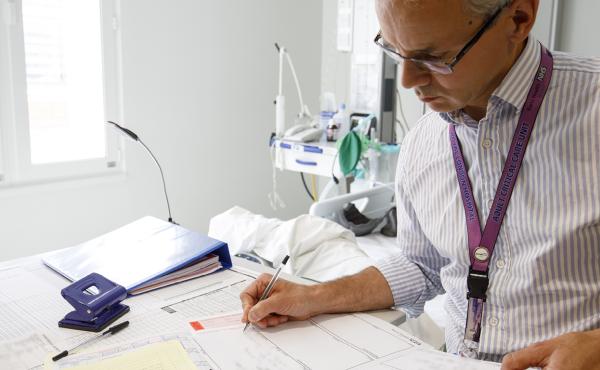Equivalence for Core Programmes
Intensive Care Medicine does not have its own core training programme but instead accepts trainees from the following core programmes:
- Acute Care Common Stem (Internal Medicine, Anaesthetics and Emergency Medicine) (ACCS)
- Core Anaesthetic Training (CAT)
- Internal Medicine Training (IMT)
Equivalence for these core programmes MUST be sought through the respective College’s process. The FICM does not manage equivalence to our partner Colleges' core programmes.
Anaesthetics (via CAT or ACCS)
This is managed by the Royal College of Anaesthetists. Equivalence is managed via the RCoA Confirmation of Core Level Equivalence form.
Queries should be directed to the RCoA Training Helpdesk.
Emergency Medicine (via ACCS)
This is managed by the Royal College of Emergency Medicine. Any further questions about this should be directed to the Royal College of Emergency Medicine training@rcem.ac.uk
Medicine (via IMT or ACCS)
This is managed by the Specialty Recruitment Office of the Royal College of Physicians.
Questions may be directed to the RCP Training Helpdesk.
Guidance regarding applications to ST3 ICM training posts from Medicine – using JRCPTB alternative certificate competencies
Eligibility to apply for ICM ST3 training is complex. ICM specialty training can be entered following initial training in anaesthesia, medicine or emergency medicine at core/basic/stage 1 training level (the level of training required depends on when the training was completed and whether the doctor intends to pursue ICM training with a partner specialty (dual/triple CCT).
The applicant must present evidence of the training undertaken AND hold the relevant specialty’s College exam as stipulated in the ICM National Recruitment Office (ICMNRO) eligibility documentation.
If a potential applicant is applying via the medicine route and wishes to provide the JRCPTB (Joint Royal Colleges of Physicians Training Board) Alternative Certificate, then FICM and ICMNRO are aware that Internal Medicine Training (IMT) has a curriculum for which all components must be met for the certificate to be issued. The following guidance is in the ICM ST3 Applicant Guidance and has been circulated to FICM Tutors, Regional Advisors and other consultants involved in ICM training who may be approached by potential applicants for advice and signatures.
If all the components of the JRCPTB Alternative Certificate cannot be met, then it is possible that the CESR route may be more suitable for a candidate to pursue. There have been some applicants recently who have had their offer of a CCT training withdrawn when they have presented a signed alternative certificate but are then not able to present evidence of having completed any relevant medical placements.
IMPORTANT: Applicants who are submitting an Alternative Certificate to Enter Group 2 Higher Physician Specialty Training must make sure they have evidence of 24 months experience in medical specialties (of which at least 12 months must include the care of acute medical in-patients). Experience in certain acute care common stem specialties can be counted towards the 24 months in some circumstances. These posts are all defined by the JRCPTB.
The alternative certificate MUST be signed by an appropriately qualified consultant – as defined by Joint Royal Colleges of Physicians Training Board. The signatory must have worked in the NHS within 5 years of the certificate being signed and have a good knowledge of the IMT Stage 1 curriculum.
The form is lengthy and detailed. Importantly, the signatory must attest to seeing evidence commensurate with all the IMT curriculum’s expected outcomes with 2 years medical specialty experience.
If an applicant, or potential Consultant signatory, has any doubt then the Regional Advisor in ICM should be consulted.
Want to know more about ICM training?
Read our curriculum.


